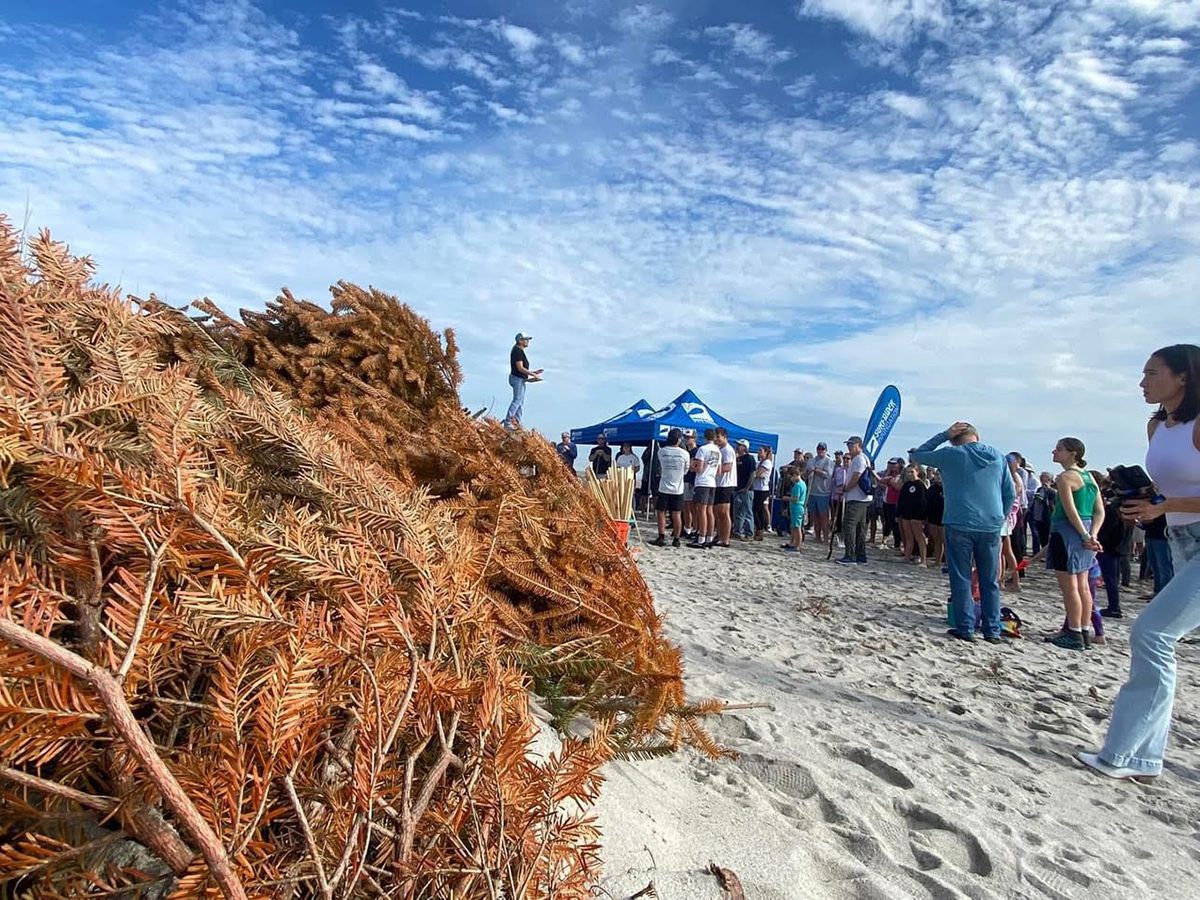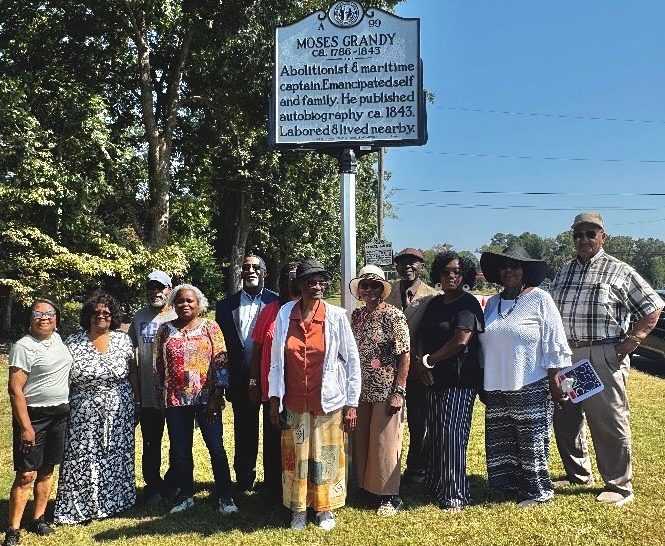
Guest commentary
To stimulate discussion and debate, Coastal Review welcomes differing viewpoints on topical coastal issues.
Each winter, as lights and decorations are packed away, holiday trees are typically discarded or sent to landfills in most areas. But in the Wilmington region of North Carolina, the Cape Fear Chapter of the Surfrider Foundation has been doing something different.
Supporter Spotlight
For the past 11 years and this past Saturday, this chapter has led the community in repurposing Christmas trees to rebuild dunes in critically eroded stretches of the coastline. These efforts not only help restore the natural landscape, but also educate the community about one of North Carolina’s most pressing challenges: protecting our coastline in the face of sea-level rise and intensifying storms.
The threats facing Cape Fear’s beaches are not unique. Across North Carolina, rising seas and worsening coastal erosion jeopardize the Tar Heel State’s ecosystems, communities, infrastructure, and economies. Climate change has led to higher tides, more frequent flooding, and even homes collapsing into the ocean due to severe erosion and storm damage.
North Carolina’s coastal property owners and communities have typically addressed chronic erosion and storm damage through beach renourishment or replenishment. This short-sighted “solution” disrupts natural sand movement and processes, frequently smother adjacent ecosystems and wildlife, and can cost taxpayers tens of millions of dollars, or more, to maintain in the long term. One storm event can easily wipe out a multimillion dollar project in a matter of a few hours, leaving North Carolina’s coastal habitats at risk of permanent loss due to sea level rise and flooding.
This is where nature-based solutions come in.
Nature-based solutions restore and conserve ecosystems by leveraging natural processes and resources to enhance biodiversity, protect habitats, and promote resilient communities. They also help mitigate disaster risk, including the effects of sea level rise, flooding, and storm surge.
Supporter Spotlight
In the case of the Cape Fear Chapter’s annual dune restoration event, volunteers place Christmas trees collected by the city along coastal areas in need of protection and rebuilding. Working closely with local government, community members, and wildlife advocacy groups, Surfrider ensures the trees are positioned to maximize sand capture while avoiding harm to wildlife. Once staked in place, the trees act as natural dune infrastructure, capturing sand and fostering the regrowth of critical dune plants and ecosystems.
In 2024, the Surfrider Foundation launched its Climate Action Program to focus on implementing nature-based solutions for climate impacts in coastal areas from Cape Fear to Hawaii, and everywhere in between. While the official program is new, volunteers across the country have long been leading efforts to address these challenges in their communities through the Surfrider Foundation. The Cape Fear Chapter exemplifies this approach, demonstrating how grassroots action can drive meaningful coastal change.
Across Surfrider’s network, volunteers are championing local initiatives to combat the impacts of climate change. From advocating for living shorelines and marsh restoration to promoting managed retreat, Surfrider’s activists are showing how nature-based solutions can address erosion and flooding sustainably.
The annual Christmas tree dune restoration event in Cape Fear serves as an entry point to educate the community on how nature-based solutions can mitigate climate-driven impacts. Through hands-on volunteer opportunities, Surfrider emphasizes the need for widespread adoption of sustainable practices along our coasts. These efforts empower community members to advocate for long-term, science-based policies, calling on decision-makers to prioritize the resilience of their communities.
As we welcome 2025, let’s make this the year we reimagine our relationship with North Carolina’s coast. By embracing nature-based solutions and working together to protect what we love, we can create a thriving, resilient coastline for generations to come.
To get involved with the Cape Fear Chapter’s dune restoration event next year — or to find volunteer opportunities with other Surfrider chapters along the coast — visit surfrider.org/volunteer.
Let’s make the health of our coasts a shared New Year’s resolution.
Surfrider Southeast Regional Manager Kayla Huff contributed to this piece.
Opinions expressed by the authors are not necessarily those of Coastal Review or our publisher, the North Carolina Coastal Federation. See our guidelines for submitting guest columns.







